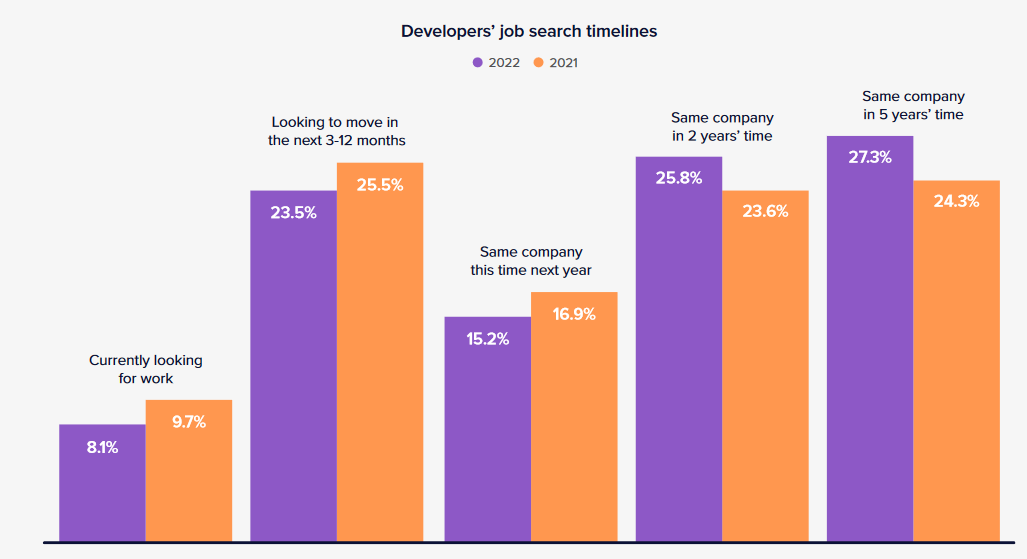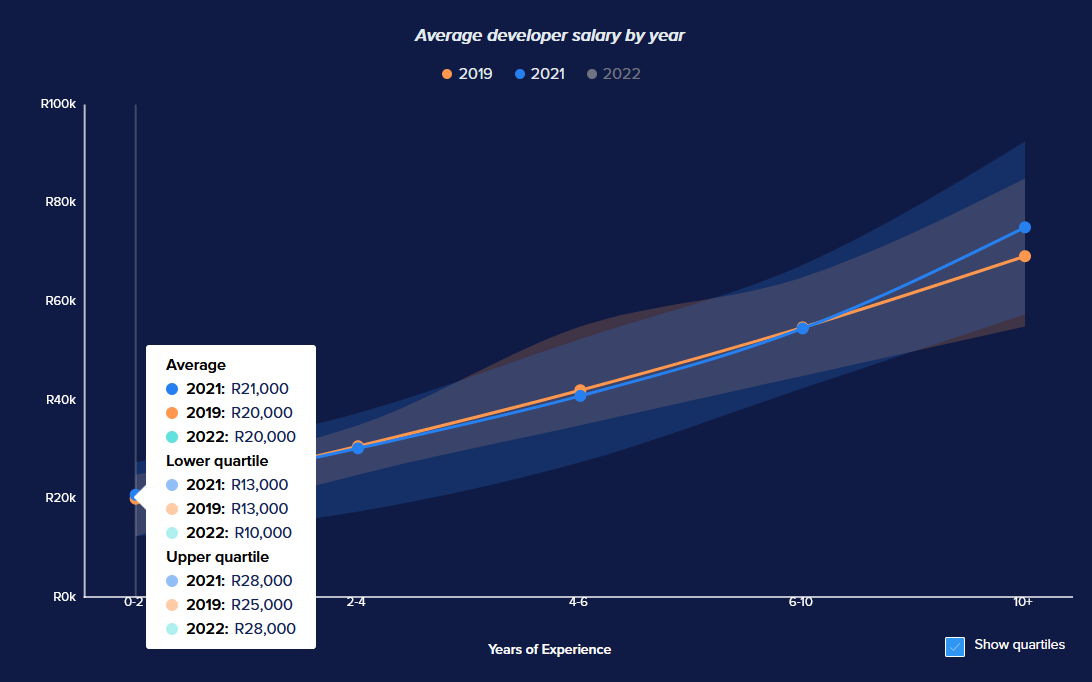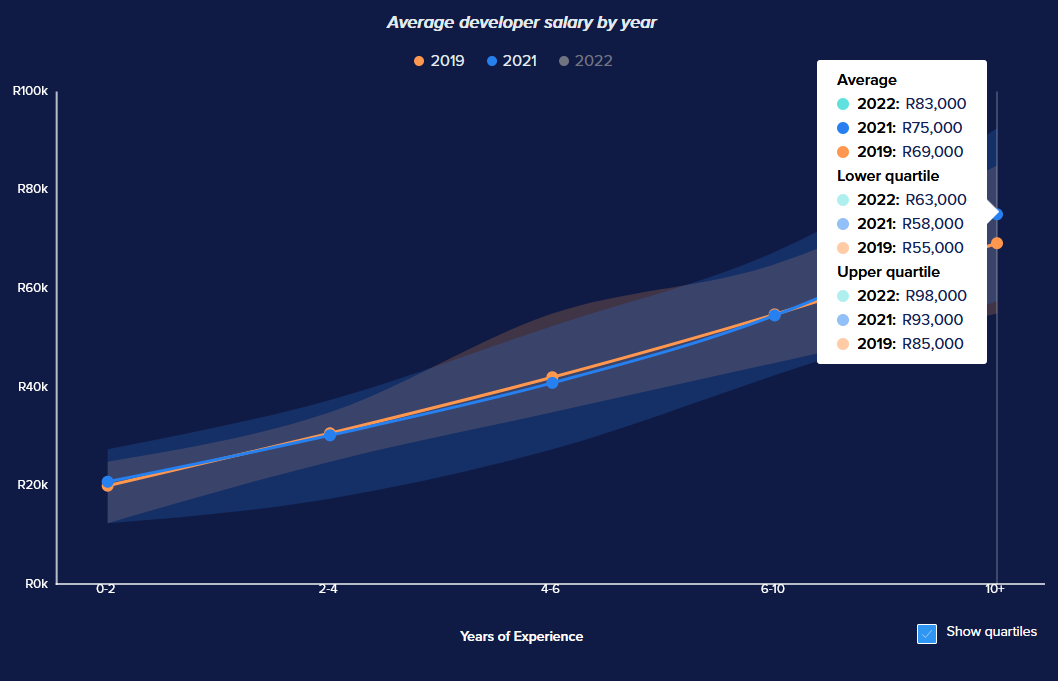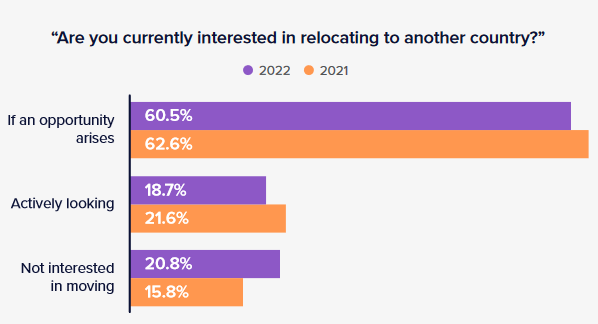This sought-after job title in South Africa has a problem

Of the 26.8 million active software developers globally, only 121,000 reside in South Africa – out of a total of 716,000 in Africa.
Add to this the fact that 38% of African developers work for at least one organisation outside of the continent and it’s clear why tech talent is hard to come by for South African firms.
This is according to Malcolm Laing, former Investec Group CIO and founding member of the Academy of Accelerated Technology Education (AATE), who said that instead of corporates fighting over a finite number of tech candidates, initiatives aimed at growing the talent pipeline through on-the-job training and giving junior developers a leg up make a lot more sense.
The move from monolithic on-premises IT solutions to in-Cloud rent-and-assemble models is further exacerbating the unrelenting demand for tech talent locally and globally, said Laing.
He pointed to the latest 2021 ICT Skills Survey which highlighted nearly 10,000 hard-to-fill positions in the South African information and communications technology (ICT) sector, in a country where 12.5% of graduates are unemployed.
“There are just not enough technical skills in the country to satisfy business demand. That is the crux of the matter – there’s no lack of intelligence. These graduates are amazing – we find brilliant people coming out of the universities, but their technical skills are not quite what is required on the job, which in part is due to university curriculums not keeping up with the pace of technological change and so the graduates are unable to hit the ground running,” said Laing.
“That’s not to say that universities don’t have a place in teaching foundational tech skills. If you are taught the basics of technology properly and you understand the impact of code, then you understand the underlying fundamentals of the tech world, but every 18 months the tech industry is changing,” he said.
These sentiments are echoed by Stephen van der Heijden, VP of community at OfferZen, who said that talent is universally distributed, but opportunity is not. In short, there are people that are undiscovered that are not realising their potential and the mission is to find these undiscovered developers.
Salaries
OfferZen, a technology talent specialist, published its State of the Developer Nation report for 2022, in February, showing that the average salaries of senior software developers have increased by 19% since 2019, while less-experienced developers saw their wages increase by 7.4% over the same period.
The report found that over 30% of South African developers were looking to move jobs within the next 3-12 months. Work-life balance is the number one reason South African developers stay in a role, according to the report’s findings.

Overall, fewer South African developers are looking to move abroad this year than in 2021. At the same time, the majority is still open to finding jobs overseas and 1 in 5 are actively exploring opportunities internationally.
Senior developers are the most likely to already be exploring new pastures, while tech leads are most likely to stay put across the different seniority levels, said OfferZen.
According to van der Heijden, the majority of junior software developers switch employment every few months.
For a software company, onboarding and training juniors and then soon losing them can be a costly exercise. The acute junior developer problem, according to Van der Heijden is also that without a previous track record, companies find it difficult to assess junior software developers’ abilities.
“As a result, they use work experience as a proxy for quality. It’s hard to get hired if you have no work experience, and this is especially true in the software development field.”
These factors make it tough for junior developers to land great developer jobs where they can learn and grow – even as the profession continues to grow in size and importance in our economy, said Van der Heijden.
As such, global technology companies, corporates, local educators and governments need to strengthen the developer pipeline by investing in education that builds trust in these developers and makes them readily employable.
“In South Africa, we have more than 600,000 unemployed university graduates. If we take in 10% of graduates, who possibly studied the wrong degree or are just struggling to find a job – that’s 60,000 people with an accelerated learning track across three critical skill paths: Cloud-certified software engineers, security engineers and data scientists,” said Laing.
On completion of the programme, students will take the Institute of Chartered Information Technology Professionals (ICITP) board exam, which will provide them with a South African Qualifications Authority (SAQA)-recognised qualification in their chosen specialisation.
Read: Investec launches programmable banking – here’s what that means for customers























